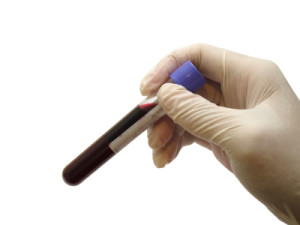Patients Don’t Lie – Thyroid Lab Tests Do
I have a healthy skepticism of lab tests, based on my own clinical experience with these tests. The same blood samples from several of my patients have been sent to different labs for measurement of their thyroid hormone levels, and the results have varied by as much as 50 percent. The most that can be said about a lab test is that it is a snapshot of what is going on in the blood at one moment in time. However, thyroid hormone blood levels vary throughout the day and their actions are affected by disease processes, prescription drugs, other hormones that the body produces, and even environmental chemicals.
Also, the “normal laboratory range” of thyroid hormones is an arbitrary value, defined statistically as plus or minus two standard deviations from the mean. This so-called normal range is as wide as the Grand Canyon. In practice, it means that approximately 90–95 percent of the population will always fall within the normal range. However, I assure you that 90–95 percent of the population does not feel healthy, well, and full of energy.
Not only that, but the arbitrarily defined “normal” value has actually changed over time. Between 1991 and 2002, the normal laboratory range for the free thyroxine (free T4) blood test was lowered by 15 percent, from 0.90–2.00 ng/dl to 0.76–1.70 ng/dl.
What this means is that an individual in 1991 who had a free T4 value of 0.80 ng/dl would have been classified by a conventional doctor as hypothyroid, but an individual with an identical T4 value in 2002 would be told that her thyroid function was in the normal range and would be denied treatment. Yet these two patients, separated in time by eleven years, likely would have had numerous symptoms in common—symptoms that are highly responsive to thyroid hormone replacement therapy.
Declining Hormones = Declining Health
Leaving aside the problems of conflicting lab test results and variable definitions of what is “normal,” there is another reason why lab tests should not be the sole factor in determining whether an individual has hypothyroidism: thyroid hormone levels decline with age, with predictable effects on energy and well-being. It is the relative decline in your thyroid hormone level that matters, not your level compared to some arbitrarily defined standard.
Let’s say that as a healthy twenty-five-year-old, your free T4 level was 1.60 ng/dl—the high end of the “normal” range. By the age of fifty, your free T4 level might be as low as 0.80 ng/dl—the low end of the “normal” range. This represents a 50 percent decline in the thyroid hormone that is available for use by your cells. Since thyroid hormones enable your cells to generate energy, is it any wonder that as your thyroid hormone level declines, your energy level also decreases?
If a doctor relied solely on a lab test to evaluate your thyroid function, he would tell you that your condition is “normal”—but you wouldn’t feel normal with 50 percent less thyroid hormone. To ensure that you have plenty of energy and feel healthy, your doctor should strive to maintain your thyroid hormone level in the range that is optimal for you.
This is the approach I take with my patients. Yes, I do perform blood tests, primarily to measure free thyroxine (free T4) and to determine whether thyroid antibodies are present. I also look at the total cholesterol and LDL (“bad” cholesterol) levels because these are often elevated in patients with hypothyroidism. However, my primary criterion for diagnosis—and for evaluating the effects of treatment—is how the patient feels.
If you came to my office with symptoms indicative of hypothyroidism, even though your thyroid hormone levels might be in the so-called “normal” range, I would likely offer you a therapeutic trial of thyroid hormone replacement. I would start you on a very low dose and then slowly increase this until your symptoms diminish.
An individual with hypothyroidism must be treated gently, like a car on a cold winter’s day. When you get into a cold car and start the engine, it often knocks. Cold air comes out of the heat vents. If you gun the accelerator, you might throw a rod in the engine. Instead, you let the engine warm up slowly and then take the car on the road. Likewise, in the use of thyroid supplementation, small doses are prescribed initially and increased gradually until the symptoms are relieved. The final dose varies from patient to patient.
Find out if you could have hypothyroidism:
Click here for the thyroid symptom checker quiz for women.
Click here for the thyroid symptom checker quiz for men.

